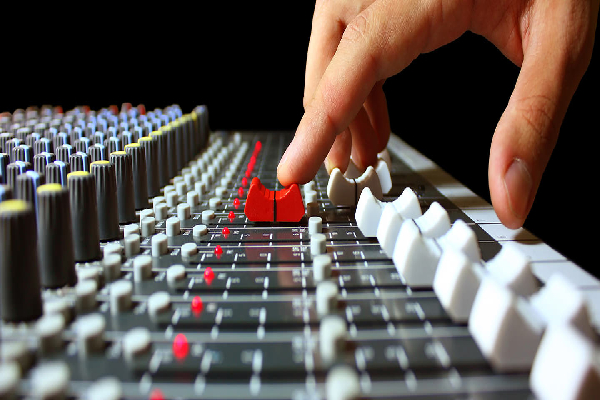A brief introduction
Without music, we lack a sense of wholeness. The benefits of music can be numerous, including the development of the brain and the alleviation of stress. Some schools, however, are eliminating music from the curriculum to make way for more critical subjects, such as math and language arts.
This means that children will miss out on the chance to further their development due to something unrelated, such as being good at another topic or needing higher exam scores—music should never be omitted!
The chapter discusses how educational systems have begun to exclude classes with lower grades when students perform better than expected in certain areas, such as removing music education programmes, which leaves pupils without access to one way people express themselves.
There’s a new tradeoff if music isn’t taught in classrooms. Private lessons will not benefit children as much as private instruction, and even if they do, some families cannot afford to pay for them or find the time to do them on top of everything else they need to do every day.
The article discusses the importance of exposing students to instruments from an early age in order to stimulate their brains to develop faster than students without such exposure.
Music and Brain Growth:
Music is an effective instrument for brain development. Many studies have revealed that pupils who actively participate in music have better brain processing than those who simply listen. For example, researchers at Northwestern University discovered that people who played instruments and listened to various sorts of classical or jazz compositions had superior cognitive skills than those who merely heard music as background noise while studying other subjects. This is contradictory to prior research findings of having a higher IQ score when father and mother are not exposed to any form of art from birth until three years of age than when mothers and fathers do not expose their children to similar form of art from the womb to age eight. Other studies have come to the same conclusion; if you can find the time, it’s always advantageous.
Do you have a musically inclined child? Why not enroll them in some extracurricular sessions to understand more about it enjoy playing instruments? This post will explain what prices such types of education programmes include, so be sure to visit this site for additional information on how much they cost. Music is also a fantastic technique for children to boost their reading comprehension skills!
Music is more than simply a game for kids. It can help them develop their reading skills and improve their read text because music needs the same language principles as spoken word, such as paying attention and responding appropriately in a turn-taking discussion.
Interpersonal skills and music
Music education can also be beneficial since it allows students to bond and improve their relationships by presenting them with shared experiences. Children are naturally social, so we need to provide opportunities for them to form bonds and collaborate with others on something that everyone can enjoy, such as forming a band or small ensemble, or encouraging participation in chorus, where each child benefits from trying to work with their own strengths, encouraging bonding between friends with different talents but who can help each other. Providing these experiences leaves a lasting impression on children long after they have graduated from high school (something that cannot be achieved without original experiences)
According to one study, pupils who were actively participating in music classes had stronger speech processing abilities as well as higher reading scores than those who did not. Another study, also done at Northwestern University, came to the same conclusion, emphasising the importance of all children developing great reading skills because they are required throughout their academic careers—not just in English literary classes, but also in arithmetic word problems.
Integration of many themes and music
Music education is essential for gaining a comprehensive understanding of the arts. Music has been demonstrated to increase a child’s general competence in math, science, reading, and writing by enhancing concentration levels while studying other subjects and encouraging a sense of creativity, which translates into enhanced problem-solving skills, according to studies.
Music incorporates many different topic areas, so it’s no surprise that studies indicate how vital it is for youngsters to learn about it because they’ll be able to work on arithmetic abilities, scientific knowledge (such as sound waves), history teachings, and so on.
Students can find learning about the elements of music, such as rhythm and pitch, and how they work together in a symphony to convey an emotion or a storey, to be both relevant and enjoyable. Indeed, understanding the importance of social genres from Bach’s Masses up to Lady Gaga’s latest album titled “Joanne” is possible all within one course by using time signatures as fractions (e.g., 3/4), lyric analysis tools like rhyme schemes that make it easier to read difficult words with ease, discussions on instrument theory that will heavily rely on physics concepts such as sound waves, and discussions on instrument theory that will heavily rely on physics concepts such as sound waves.
Personality Development and Music
One of the most underappreciated qualities of music is its ability to enhance a child’s individuality. Through playing instruments or singing with others, schools should establish programmes that teach students discipline, time management skills, and balancing all other activities in their lives. Students will be better prepared for future challenges they may face both at school and outside of academics if they learn these valuable lessons at a young age, such as those presented by social media outlets like Facebook, which may easily distract a child as friends post constant updates, preventing him or her from concentrating on anything, such as schoolwork.
Spending quality time with your child and instilling discipline in them while they are young will have a significant impact on their future. It will be much easier for him or her to concentrate for long periods of time in high school, if for example, you teach him or her to stay focused during classes.
Wouldn’t it be beneficial to society if this student performs in his subjects during high school and picks an exceptional institution for college level study upon graduating from high school (which can lead to greater career prospects)?
Music and Anxiety
Music can help you relax. Students who are overburdened with juggling extracurriculars in high school, and also considering their post-secondary possibilities during this time of greater pressure from better grades, can benefit from music to alleviate burnout induced by homework and boost emotional states. Music provides numerous advantages for persons of different ages. It’s critical to understand why so that we can continue to advocate for music education in schools!
Some pupils may have tough home situations and could benefit from some assistance in their stress development at school. Music is a fantastic approach for them to escape unpleasant situations or simply relax before a test begins!






